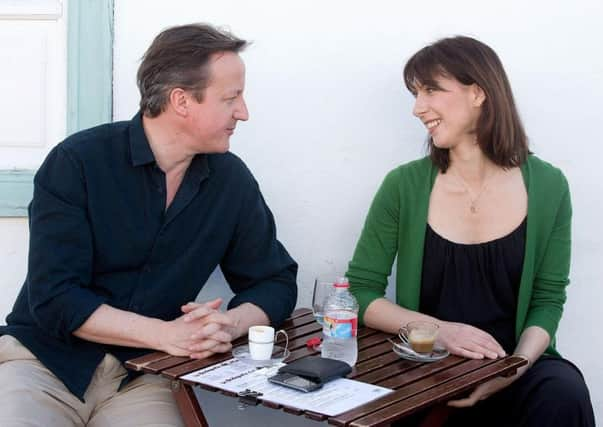YP Comment: Taxing times for Cameron. Will wealthy be put off politics?


If he had been open with people at the outset about the extent to which he, and his family, had benefited from the Panama tax haven where his late father, Ian, had invested so much money, he would not have faced the embarrassment of having to release a summary of his tax returns in an attempt to defuse this scandal.
Yet even this unprecedented disclosure by a serving Prime Minister has still not satisfied the Tory leader’s many critics who are now asking if the Cameron family has circumvented inheritance tax rules and whether Mr Cameron should, in fact, have released unedited copies of the actual tax returns lodged with HMRC. Where will it end? Should all Ministers and senior politicians do likewise? Labour and the SNP suggested so as a clamour grew for George Osborne to follow Mr Cameron’s lead.
Advertisement
Hide AdAdvertisement
Hide AdYet, while it is Mr Cameron who made tax avoidance an issue of ‘morality’ when he attacked comedian Jimmy Carr’s financial affairs in 2012, this politics of envy could have damaging repercussions for good governance. If the ‘mob mentality’ persists, there’s every likelihood that it will deter wealthy people from entering a public life at a time when the upper echelons of the Government is increasingly bereft of visionaries who know how to create jobs and prosperity.
Given the strict protocols that already exist on the declaration of business interests, the biggest loser of all from this scandal will not be David Cameron. It will be the British people if this country ends being governed by squeaky clean career politicians with little or no business experience.
Market forces: Stand up for local producers
IN many respects, shoppers have never had it so good. The growing presence of discount retailers has forced the major supermarkets to cut their prices and, therefore, reduce their profit margins explains the recent consternation when the most recent analysis of the retail sector revealed that both Morrisons and Asda had lost a significant proportion of market share in comparison to their rivals.
Yet supermarket price wars come at a cost – and it is independent food producers who appear to be paying the heaviest price of all. Even though public awareness about the need to buy British has never been greater, it has not prevented a five-fold increase in the number of such firms being declared insolvent according to new research published by accountancy firm Moore Stephens.
Advertisement
Hide AdAdvertisement
Hide AdThe primary reason for this trend, a mirror-image of the specific financial difficulties afflicting Yorkshire’s dairy industry at present, is that these firms – often small in scale – simply cannot afford to cut their costs, or profit margins, to satisfy the demands of the large supermarkets whose pricing policies are integral to the UK food industry.
What can be done? Another reminder about the need for far clearer rules on ‘country of origin’ labelling so British produce can be promoted accordingly, customers have it in the power to challenge managers at their local supermarket to support Yorkshire’s food industry or threaten to take their custom elsewhere. If sufficient people took this stance, it would be harder for the major stores to price local producers out of the market with uncompetitive business practices.
The last post...Is the writing on the wall for letters?
UNLIKE text messages, the rather impersonal means by which today’s young people communicate, letters offer so much more insight into an individual’s feelings – and contemporary society. Not restricted to 140 characters, such chronicles have helped to shape so much history, hence the current fascination with the wartime diaries kept by Kathleen Hey while helping run her family’s grocery store in Dewsbury and which form a riveting book called The View From The Corner Shop.
As the Royal Mail ask people to search for forgotten letters as part of a nationwide project to mark the postal service’s 500th anniversary, is it not too much to hope for both parents and schools to encourage the importance of letter writing before it becomes a lost art? Not only will it help with literacy, but the actual discipline of writing a letter – even a short ‘thank you’ note – is still a hallmark of good manners and is far more likely to be saved for posterity than a tweet.